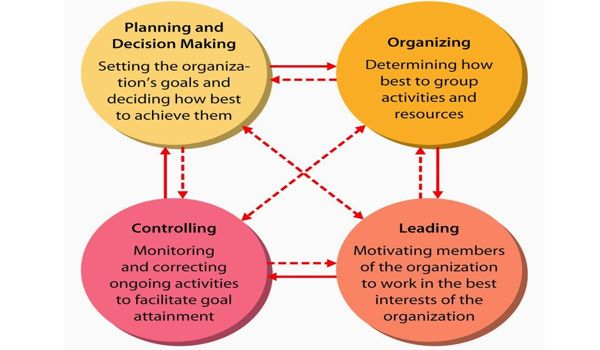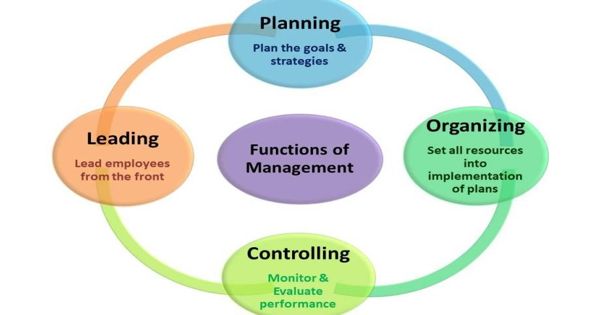Communication is the essence of organizational activities depends on communication. It is one of the most important facilitators of basic management functions and managerial activities. All managers perform the four basic functions of planning, organizing, leading, and controlling, though some will spend more time on some functions than others depending on their managerial role in an organization.
Understanding the functions will help managers focus efforts on activities that gain results. Various management scholars have given the same consent that without communication, management is impossible, and therefore communication is considered as the lifeblood of management.
Basic Management Functions
Management means planning, organizing, directing, motivating, and controlling. To do such functions, managers must maintain active and effective communication.

- Planning:
In the planning stage, managers establish organizational goals and create a course of action to achieve them. It means what is to be done in the future. During the planning phase, management makes strategic decisions to set a direction for the organization. It helps the managers to run the organization skillfully and economically. While planning, managers usually evaluate internal and external factors that may affect the execution of the plan, such as economic growth, customers and competitors. Therefore managers must collect various information, exchange words, consult with others, and make a decision. All these activities require communication.
- Organizing:
The purpose of organizing is to distribute the resources and delegate tasks to personnel to achieve the goals established in the planning stage. Land, labor, capital, and machinery are required for any organization to operate itself in the market. Managers may need to work with other departments of the organization, such as finance and human resources, to organize the budget and staffing. All these resources are not available always. Collecting resources from the right sources in time is organizing. During the organizing stage, managers strive to create a work environment conducive to productivity. A manager must maintain good communication in this regard.
- Directing:
Leading consists of motivating employees and influencing their behavior to achieve organizational objectives. To utilize the resources properly it requires proper direction from the managers. Though managers may direct team members by giving orders and directing to their team, managers who are successful leaders usually connect with their employees by using interpersonal skills to encourage, inspire and motivate team members to perform to the best of their abilities. To direct resources in the right channel and to get optimum benefit, a manager must be conscious about effective communication.
- Motivating:
It stimulates a person to give his full effort. It helps to inspire employees to develop their performance. Motivation should be situational and therefore managers must have proper ideas and knowledge through communication.
- Controlling:
Controlling is the process of evaluating the execution of the plan and making adjustments to ensure that the organizational goal is achieved. Whether activities are properly functioning or not is required to be checked regularly arid therefore communication is a pre-requisite here to collect information. During the controlling stage, managers perform tasks such as training employees as necessary and managing deadlines. It is the communication which helps managers to obtain information from various servers and take corrective measure to attain the organizational goal.
Information Source:
















